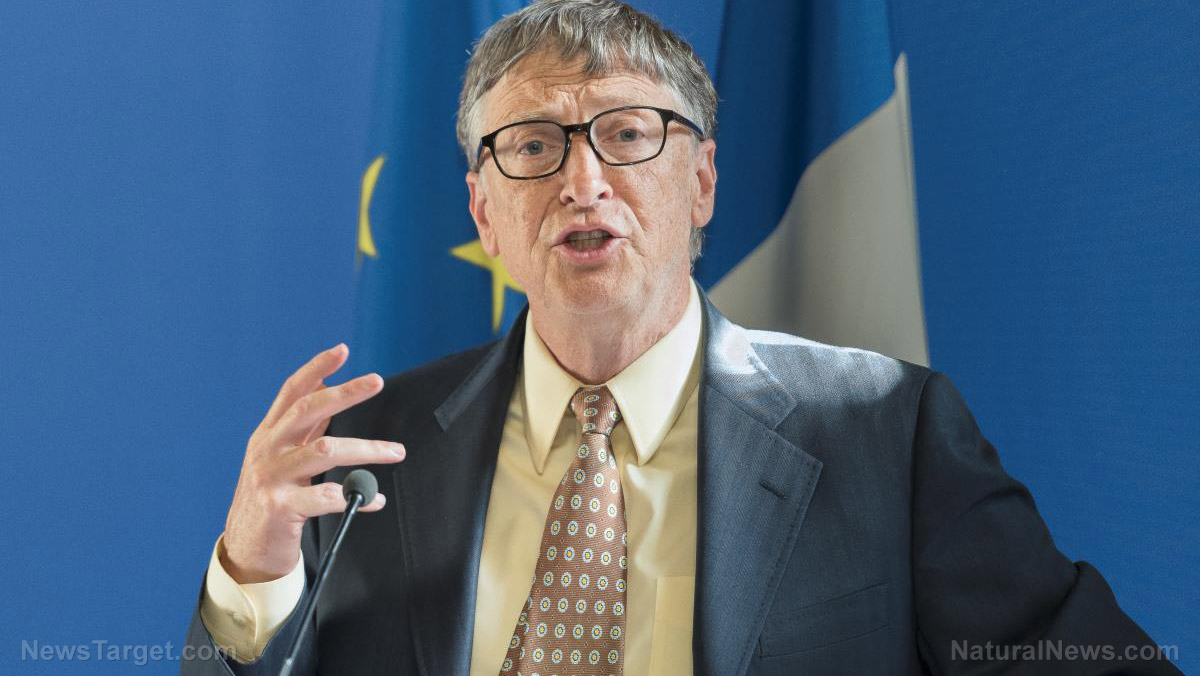German farmers: Ukraine’s accession to the EU would destroy family farming and flood markets with cheap crops
12/04/2023 / By Belle Carter

The European Union is preparing to give Ukraine the green light to begin formal talks on joining the 27-country bloc before the end of the year, with a formal announcement expected this December, according to diplomats with knowledge of the plan. EU granted Kyiv status as a candidate for membership in June, and the Commission is due to issue a “progress report” on how well Ukraine and other aspiring members are meeting the bloc’s conditions for joining.
However, the beleaguered country’s ascension to the bloc raised concerns among German farmers related to how this move could destroy family farms across Europe. The German Farmers’ Association (DBV) warned decision-makers against trying to interpret the EU’s Common Agricultural Policy (CAP) in its current form considering the accession. DBV President Joachim Rukwied said that if Ukraine were to join as a major agricultural power under the current regulatory conditions, it would destroy the continent’s family farming model and lead to Europe’s markets being flooded with cheap crops. It would cause the EU to control 30 percent of the world’s grain exports, but it could spell disaster for European farmers.
“Accession would lead to the demise of family farming in Europe,” he told a press conference on the future of the EU’s CAP on Nov 15. “This must remain in the background of all political discussions.” Rukwied also pointed to Ukraine’s large agricultural sector and the fact that the average farm in the country is many times larger than in the EU. The move would slash the €386 billion pie and give a hefty amount to Ukraine, a country where the average farm size is 1,000 hectares compared with just 16 acres in the European Union. As a new member state, Kyiv would take more out of the common budget than it could put back in for a very long time. The accession would cause a drastic reduction in the money to other member states.
The continent’s agricultural superpowers, France and Poland, he claimed, would have no chance of winning a game played under the changed rules, but even worse times would await medium and smaller producers such as Bulgaria and Hungary. Rukwied added that a common agricultural policy including Ukraine would therefore be unworkable unless it were to be at the expense of the current EU member states. (Related: As the EU’s Ukraine grain ban ends, longtime ally Poland blasts Zelensky for trying to flood Europe with cheap grain and produce, driving farmers out of business.)
The DBV president also warned that Ukraine is a country “whose agriculture produces well below our standards, for example, in the use of pesticides” and would, therefore, compete unfairly with farms in other countries in the continent. He was also upset by the fact that 2030 could be the possible date for the country’s accession as this would completely ruin the next funding cycle for the CAP, which starts in 2028 and runs until 2034 and is based on the current European Union, not an enlarged one.
Zelensky: Kyiv’s accession would make the EU a global player in world agriculture
Unlike the farmer’s association, the German Agriculture Ministry has pushed to use the forthcoming bloc entry of Ukraine as an occasion to fundamentally reform the CAP and move away from the largely unconditional area payments. Also, several German federal states, environmental organizations and representatives of organic and small-scale farming have also spoken out in favor of preparing EU agricultural funds for the impending accession.
Ukrainian President Volodymyr Zelensky’s administration also argued that his country’s accession would strengthen the EU’s agricultural sector and make the Union a global player in agriculture.
Furthermore, a recent study by the Vienna Institute for International Economic Studies concluded that the Ukrainian agricultural sector would not become a “bottomless pit” for the CAP because it is competitive without large subsidies – but at the same time, in some ways, “too competitive” compared to other EU countries. “In fact, thanks to fertile black soil and cheap labor, Ukrainian agriculture produces so efficiently that it represents serious competition for many EU countries, as the dispute over Ukrainian grain exports to Poland and Hungary shows,” the study said.
Meanwhile, for Euractiv.com‘s Julia Dahm, Ukraine will have to actually transpose all EU standards into national law first before it can join the Union.
Visit WorldAgriculture.news for more stories related to this.
Sources for this article include:
Submit a correction >>
Tagged Under:
agriculture, big government, budget, conspiracy, crops, dangerous, EU, food collapse, food supply, Germany, harvest, organic farming, supply chain, Ukraine, Volodymyr Zelensky, world agriculture
This article may contain statements that reflect the opinion of the author
RECENT NEWS & ARTICLES
COPYRIGHT © 2017 FOOD SUPPLY NEWS




















